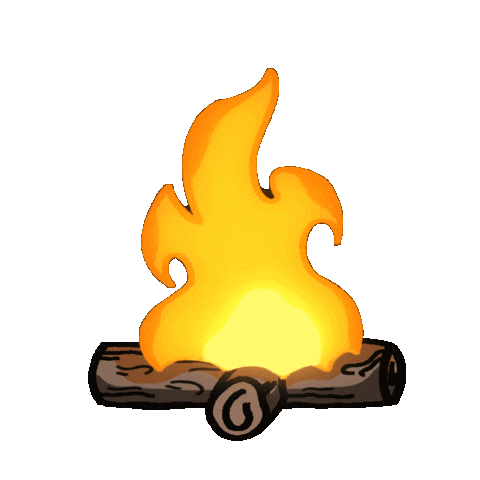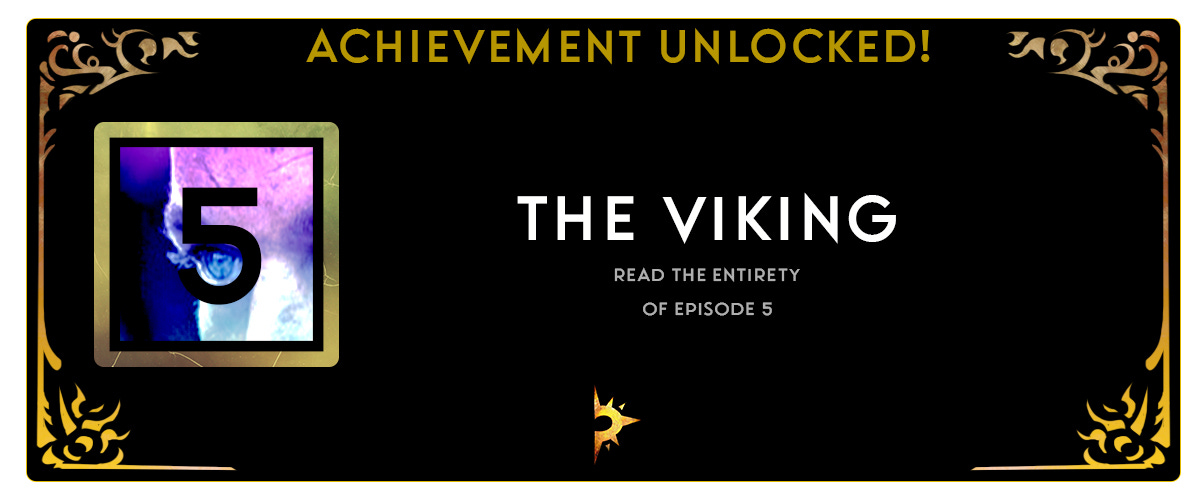The Spirit of the Viking
Episode 5 - On the Courage to face your demons.
Greetings,
The fire burns bright and keeps us warm. Don’t stray too far; the night is cold and daylight is nowhere near in sight.
Last time I talked a little about Forgiveness and its meaning. It was a good start but nowhere near the complete picture. What I’d like to do here is give you something practical.
You may think that the Unconscious has nothing substantial about it, but remember that all things are born from it. And all things return to it.
How do we make mythology practical?
Well, in Episode 3 we saw that the origin of Money is in myth. But while knowing all sorts of things about this is interesting, it still doesn’t touch on the practical aspects.
Myth-Making
At the moment, there are two myth-worlds (so to speak) that I’ve been delving into and investigating deeply: Greek and Norse. I’m also making my way through the Mesoamerican ones, though very slowly. The Maya one is especially fascinating, given their incredible grasp of numbers and mathematics.
I’d also like to add a third, which is the Christian/monotheistic one. I think the idea of ‘Forgiveness’ was connected to it. There’s so much to unpack out of that one, and I’ve not even scratched the surface. However, as we go forward in our tales here, you will hear me mostly mentioning and referencing these three.
That’s the ride we’re on.
The Way of the Viking
Given my intention to be practical, I was considering how to bring together, for example, the idea of ‘Forgiveness’ with something inherent in ancient Norse tradition and way of life. As you can probably imagine, the Vikings and their gods had very little to say about forgiving your neighbour and ‘turning the other cheek’. The Vikings were conquerors, warriors and expert seamen. They landed on foreign lands and engaged in all sorts of family-friendly activities such as pillaging monasteries and burning villages.
This way of life is also reflected in their myths. Their gods are violent, skilful warriors who mostly engage in building, killing and drinking. A particular emphasis is also placed on death. It’s well known that a glorious death in battle is what the Viking aims for. The entire Norse afterlife, known as Valhalla, is a paradise dedicated to fallen warriors who proceed to do much the same as in life, including drinking, bickering, fighting and waiting for the final war.

This final war (known as Ragnarök) is where all the gods are said to perish too, alongside the world and everything in it. Fun times! I have a whole lot more to say about this, but for now let’s keep it brief.
How could these two different concepts come together?
I think Forgiving the World is very important. It’s a spiritual act of psychological maturation. But it’s also only half the story. I believe that the Viking Spirit can return and be channelled, not in its form of bloodshed and conquest, but in its inherent courage.
The Viking is, beyond all else, brave. It’s almost a definition of bravery. To cross the sea, sword and axe in hand, make landfall on foreign land and be ready to engage the enemy on the shore.
You might think there’s no enemies left on your shores, no seas to sail across or reason to be a warrior. But each of you has plenty of daily foes, from heartbreak, pain, bitterness, disappointment, guilt, depression and especially Fear.
All these must ultimately be forgiven. But before you can do that you may need the courage to stand before them and look them in the eye. Make no mistake: these are Giant Forces. And it’s precisely the Giants (known as Jotunn) that the Norse Gods battle against.
If this resonates with you, I invite you to check out my Rune Series, where these concepts are explored in-depth. Specifically I’ll point you to the Rune OTHALA, through which I explore the Viking spirit.
Also I’ve spent considerable time delving into masculine psychology and ways to integrate these concepts into psychological development and I’ve used the character of Ragnar Lothbrok from the popular series ‘Vikings’ to do that. Vikings has had an enormous influence on me and I regard it as one of the best stories I’ve ever experienced. I believe it is also responsible for the massive pagan revival we’ve seen in the past decade, through music, games and various media.
Artist Spotlight
Keeping it Norse-related, I wanted to introduce you to an artist known as Forndom (Ludvig Swärd). I discovered his music many years ago - if I was to describe his work it would be like a journey through a dark, misty, cold Scandinavian forest, while contemplating the whispers of the gods passing through the creaking branches of tall trees.
Unlike Wardruna, who are known to be more on the powerful-epic side, Forndom brings a quiet, contemplative vision to this revival of Norse pagan musical tradition.
You can find his work on Youtube Here, and I’ll also point you to one of my favourite songs from him titled ‘Svitjod’ from his album Dauðra Dura (2016). The term translates as ‘the Swedish Kingdom/People’. This track perfectly encapsulates his general mood and I suggest you try it out with eyes closed, contemplating the vastness of nature and the Nine Realms of Norse myth.
More to come.
Blessings,
If you think this content may benefit someone, please share it with them. And if you stumbled here but are not subscribed, please come hang out with me:
If you’d like to support my adventures in the invisible realms by helping me stay alive in the visible ones, you can:






